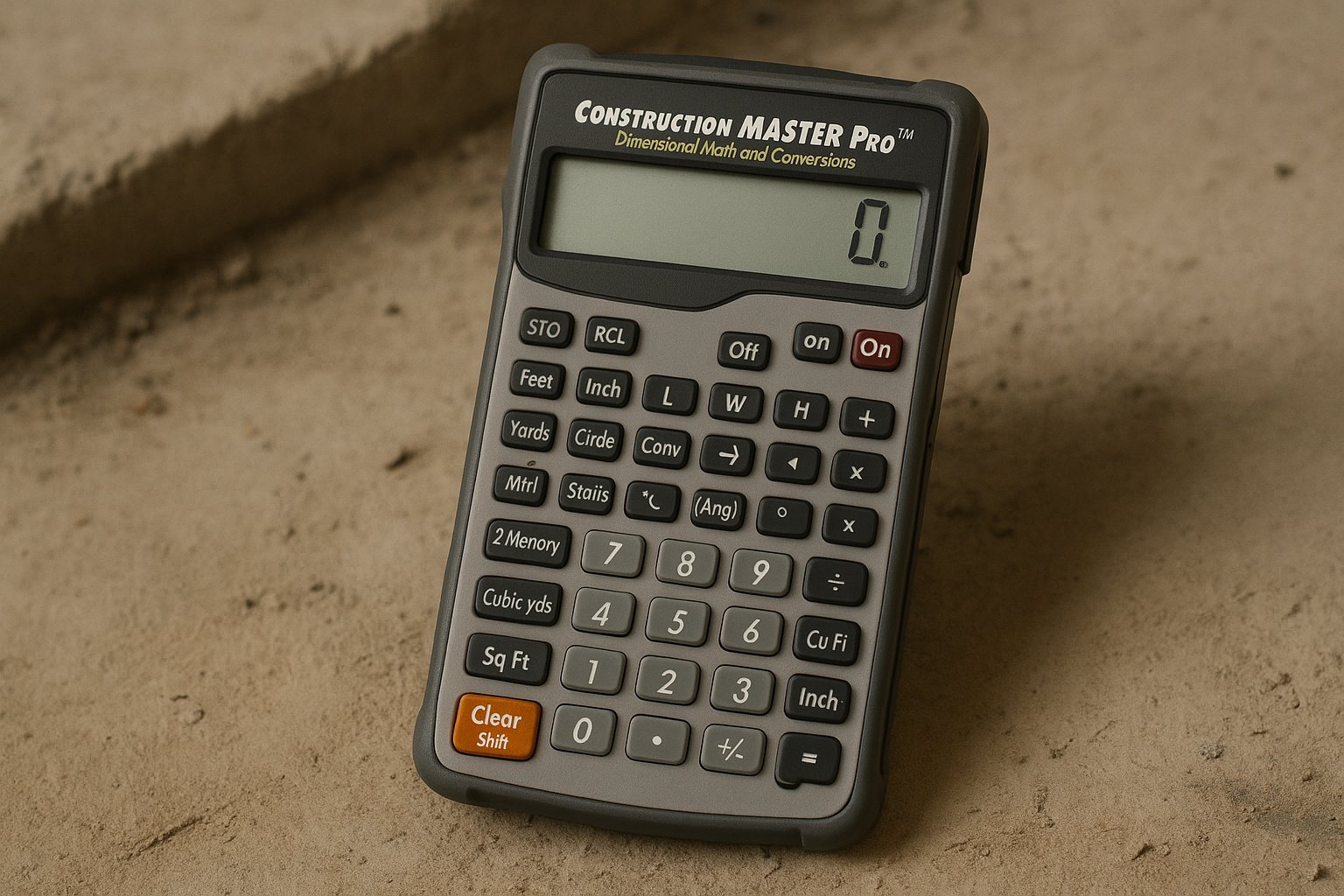Ever wondered how contractors in the U.S. estimate the perfect amount of concrete, drywall, or paint for a home project?
It’s not luck — it’s math. And behind every successful build, there’s a powerful set of construction calculators turning complex measurements into smart decisions.
Let’s explore the most used calculators in home construction, the tools that keep projects on budget, on time, and built to perfection.
1. All-in-One Construction Calculators
These are the workhorses of the construction industry. They handle feet-inch conversions, area, volume, slope, roof pitch, stairs, material takeoffs, and even cost estimates — all in seconds.
Popular examples:
- Calculated Industries Construction Master Pro – the gold standard among U.S. contractors; calculates everything from concrete volume to roof angles.
- BuildCalc (mobile app) – a modern alternative for field supervisors and carpenters who prefer digital convenience.
💡 Use case: estimating floor areas, cutting angles, stair layouts, or concrete yardage directly on-site.
2. Material Estimating Calculators
When accuracy matters, these specialized tools are a contractor’s best friend. They calculate how much material you’ll need for each phase of a project. I’ve also provided a link to our own construction calculators.
Types include:
- Concrete calculators – measure cubic yards for slabs, foundations, and driveways.
- Drywall calculators – determine the number of panels for each wall or ceiling.
- Paint calculators – estimate gallons needed based on wall area and number of coats.
- Framing calculators – estimate the number of studs, plates, and sheathing panels required for each wall or structural section. Perfect for builders, contractors, and remodelers who need accurate material counts and labor estimates before starting a framing project.
- Roofing calculators – figure out shingles or rolls for pitched or flat roofs.
🧱 Pro tip: Big retailers like Home Depot and Lowe’s offer free online calculators integrated into their product pages.
3. Cost & Budget Construction Calculators for Contractors
Numbers don’t lie — especially when it comes to estimating costs.
These construction calculators help builders, remodelers, and homeowners forecast labor, materials, and total expenses before breaking ground.
Top picks:
- Homewyse Cost Calculator – provides regional price averages across the U.S.
- Craftsman National Estimator – a professional tool widely used by general contractors.
- RSMeans Data Online – database-driven software for cost analysis and project planning.
💰 Use case: creating accurate quotes, comparing regional material costs, and protecting profit margins.
4. Structural & Engineering Calculators
Before a single nail is driven, engineers use these tools to ensure every component can withstand real-world stress.
Examples:
- Beam Calculator (SkyCiv, ClearCalcs) – checks load-bearing capacity of beams and columns.
- Concrete Footing Calculator – computes foundation volume and size.
- Roof Pitch & Truss Calculators – define slopes, spans, and truss geometry.
🏗️ Purpose: guaranteeing that the structure is not only beautiful but also compliant with U.S. building codes.
5. Energy-Efficiency & Green Building Calculators
Modern U.S. homes aim for comfort and sustainability.
That’s why contractors also use energy and performance calculators to optimize thermal efficiency and energy use.
Most common tools:
- R-Value / U-Value Calculators – analyze insulation performance.
- Solar Panel Calculators – estimate energy production and ROI.
- HVAC Load Calculators – size air conditioning systems based on square footage and climate.
🌿 Result: smarter homes, lower bills, and higher property value.
6. Built-In Calculators in Professional Software
The most advanced builders integrate these tools into digital platforms and project management software.
Examples:
- AutoCAD / Revit – calculate area, volume, and material takeoffs.
- SketchUp + Estimator Plugin – automatically generates material lists.
- Procore, Buildertrend, CoConstruct – combine estimating, budgeting, and scheduling for seamless project execution.
🧰 Benefit: complete control of every construction phase, from design to delivery.
Frequently Asked Questions
💡 Final Thoughts
In U.S. home construction, success depends on precision — and precision depends on calculators.
From the Construction Master Pro in a contractor’s pocket to Homewyse online estimators used in offices, these tools ensure no inch, dollar, or deadline is left to chance.
In my opinion, the perfect toolkit for a modern contractor includes:
- A Construction Master Pro (for on-site calculations).
- A Homewyse or Craftsman Estimator (for accurate bids).
- A custom calculator integrated into your website or CRM (to generate automatic client estimates).




